
8 minute read
Three Treasures in Kobe: Kobe Beef, Jazz and Spirits 神戶不只有神戶牛,還有爵士樂和酒
Three Treasures in Kobe: KOBE BEEF JAZZ 神戶不只有神戶牛, 還有爵士樂和酒 SPIRITS
EDIT/ 文 大鬍子阿細 TRANSLATION/ 譯 Olivia Kwan
Advertisement
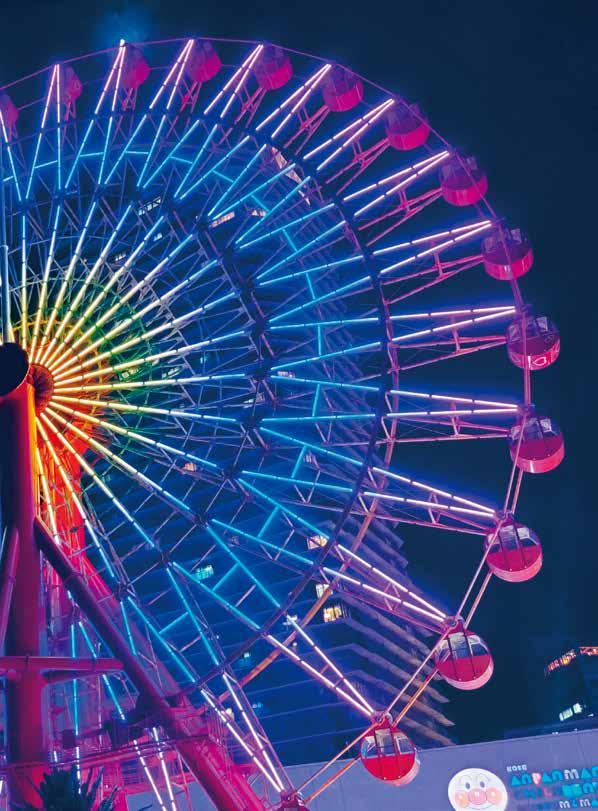
Kobe, unlike Kyoto and Nara which naturally have an old-world atmosphere created by all those antique temples or Osaka where is like a huge maze composed of busy shopping streets, is not usually the first choice for tourists travelling to the Kansai region. However, if you are a fan of wonderful food and drink or music, Kobe is a city with its own particular charm worth going to. Kobe beef is undoubtedly a special local delicacy which makes everyone from Kobe proud. It is regarded as "the king of beef". Kobe beef is famous partly because it is difficult to breed purebred cattle qualified as Kobe beef due to the strictness of the meat selection. Another reason making Kobe beef so renowned is related to the local history. Adjoining the sea, Kobe is one of the five oldest trading ports in Japan. After the port was opened in 1868, Kobe opened up a settlement exclusively for foreigners which was self-governed by them too. This implementation facilitated the exchange between eastern and western culture, such as the popularisation of western food. As the fame of Kobe beef grew huger, some other aspects in western culture got more and more popular. For example, the first café in Japan was born in Kobe. The first jazz band in Japan was also from Kobe. At the golden age of jazz music, many great jazz musicians have been to Kobe, the port city, to perform, including Duke Ellington, Louis Armstrong, George Louis and so on. Even for now, there are quite many jazz live performances, jazz cafés and jazz bars of different scales


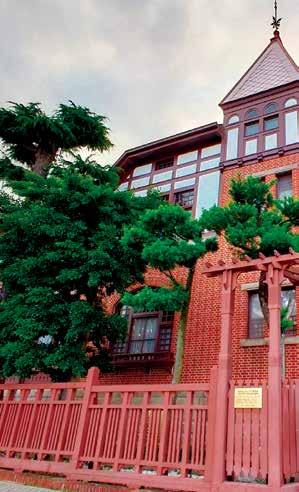
in Kobe considering the city size, which is particularly rare to see in an Asian city. "SONE" is a well-known jazz live bar located in Kitanocho of Kobe. Kitano-cho is one of the principal tourist attractions in Kobe, where many foreigners once settled after the port of Kobe opened, so most of the buildings there have a history for over a century. At present, these buildings have been renovated into pavilions of various themes. It is pleasant to walk along the ramp and appreciate the interesting houses, where you will not miss "SONE". As one of the oldest jazz bars in Kobe, "SONE" was once a Japanese-style hotel which just celebrated its 50th birthday last year. There are live shows here almost every night: house bands take up the weekdays while bands or musicians on tour take up the weekends. You can also find traditional Japanese-style jazz cafés in Kobe, among which "Jam Jam" is the most popular one. In the past when vinyl records dominated the market, listening to the music was not as convenient as in today, thus these jazz cafés became a spot where music lovers visited regularly. This kind of café is usually divided into two areas: the bar counter where customers are free to chat and the music area where customers can only enjoy their

coffee and listen to the music quietly. Of course, you can always order a drink instead of coffee. Every jazz lovers in Kobe knows about "Jam Jam". It is in the basement of a building. You will hear the beautiful melody coming out as soon as you are close to the entrance leading to the basement. The music quality is so fine that you might think there must be a live performance inside. Stepping into the café after passing through the inconspicuous entrance and the downward stairs, you will find yourself in an isolated world. Apart from the spacious room inside and the comfortable seats, "Jam Jam" is equipped with extremely good sound equipment for playing the music. You can hear every details on the record: the piano's sound strokes your eardrum tenderly like sea waves, the drumbeats make your heart vibrate and the high notes from the trumpet can just penetrate through your nerves like a silver needle. Even the crackles from the record here sound like popping popcorns rather than the "bean-frying sound" you probably will hear elsewhere. There are also jazz pubs like "midnight diners" in Kobe, which are the most relaxing ones. The owners of these jazz pubs are usually senior jazz fans who show special preference to a certain musician or great
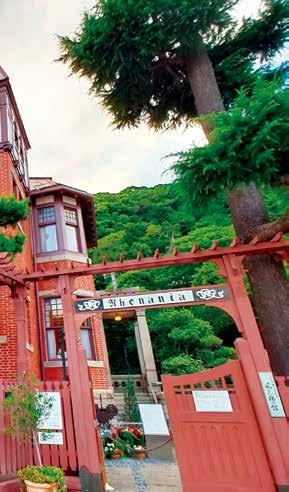
familiarity with a certain music genre. Also, these pubs are not large, and some are so small that their counters can only accommodate a few customers. Most customers are regulars. They will have a couple of drinks after work and have small talks with the owner before leaving for another round elsewhere. Yet, you shall not worry if you are new. Since the room is small, you can easily have conversations with the owner and the other customers and get familiar with each other over common topics while having a drink. This is a place where you are able to perceive the kindness and warmth from total strangers. In Kitano-cho, you can also find a pub like this called "Jazz & Booze". The pub is neither too big nor too small with bottles of alcoholic beverage displayed on the counter in rows. The wall opposite is plastered with Billie Holiday's poster while some books and magazines about jazz music are scattered along side. Over a hundred records are collected on the record stand at the end which seem to be aged judged from their outside covers. If you are a new-comer, you will find the owner, Mr. Toyama, not much of talker. However, he might be communicating with you in another way. I remember my first time there finding him keep playing different records relevant to "spring", "Spring is Here" by Makoto Ozone at first followed by "You Must Believe in Spring" by Bill Evans whose photo with his own autograph stood exactly right there on the counter.
My conversation with Mr. Toyama started with Bill Evans. He told me that the photo was borrowed from a friend of his many years ago and left with him since then. The date written on the photo showed it was signed in 1973, which was mistaken by Bill Evans at that time. He actually autographed this photo at in the year of 1975. Mr. Toyama is familiar with local Japanese jazz music, especially a label called "Three Blind Mice". He played for me quite many records produced by this label, which are all his precious collection. Every time he introduced those records, he would accurately point out the exact producing year of each of them. I was astonished by his memory, wondering how he could manage to remember all that, but I think it is common for an experienced jazz fan like him. I also brought up Haruki Murakami during our conversation, telling him that I knew Haruki Murakami has been to school in Kobe, who was one of the reasons inspiring me to start going to jazz pubs. I have been to quite a lot jazz pubs in Tokyo and Osaka, including a pub named "Old Blind Cat" where Haruki Murakami always dropped by when he was young. Nodding at what I just said, Mr. Toyama turned around to fetch the business card of his pub and hand over to me with both hands. He told me this pub has opened for decades. Before he moved it into this new building more than ten years ago, Haruki Murakami was a regular customer. Speaking of coincidence, he and Haruki Murakami went to the same middle school. I did not expect I would find out such an anecdote in "Jazz & Booze", a jazz pub I randomly walked into. But sometimes, things like this do happen. The real fun of travelling usually appears at somewhere out of your expectation.
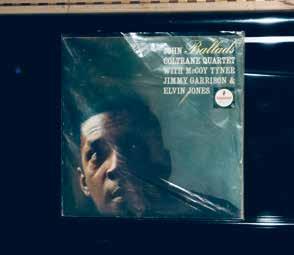
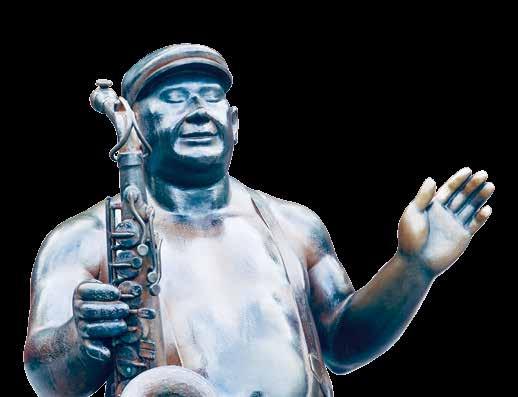
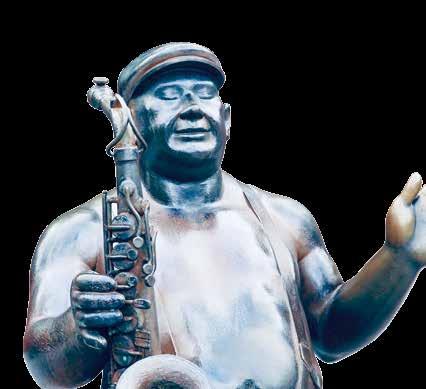
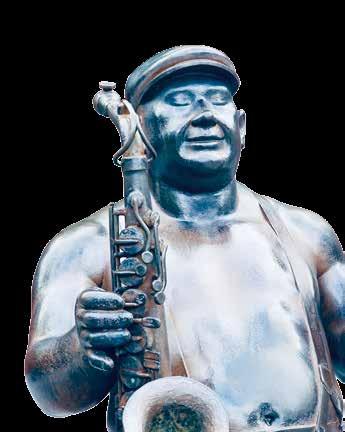

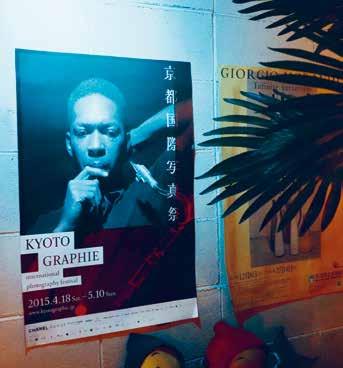
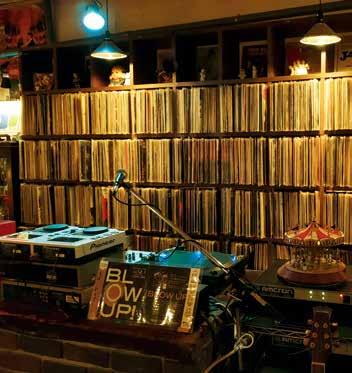
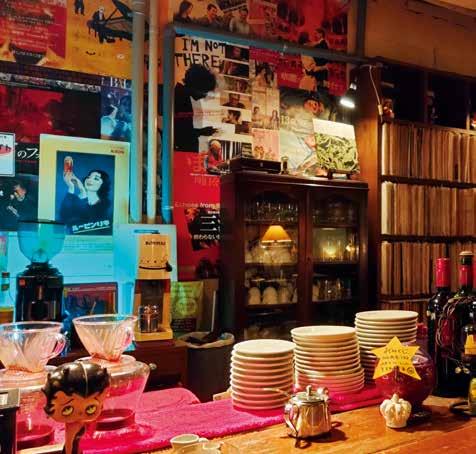
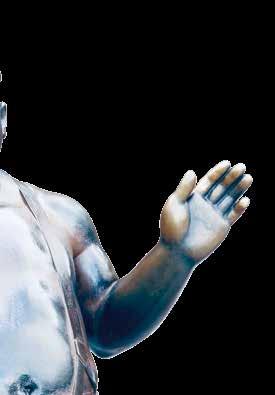
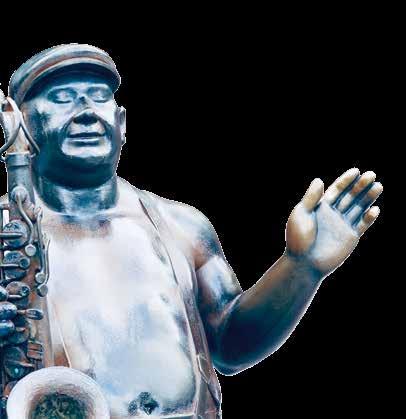
神戶通常不是遊客去關西遊玩的第一選擇。這裡不 像京都和奈良,有那麼多的寺廟,自帶古風濾鏡, 也不像大阪,熱鬧繁華,購物街就能讓人走暈。 但神戶有其特別之處。如果喜歡美食美酒還有音樂的 話,神戶值得一去。 神戶牛自不必說,這是神戶人引以為傲的特產, 被稱為牛肉中的貴族。之所以這麼出名,主要有兩 個緣故,一是品種純正,養殖艱難,肉質評選嚴格; 另一原因則是跟神戶的歷史有關。 神戶靠海,是日本最早開放對外通商的五個港 口之一。1868 年開港的時候,神戶開闢了專供外國人 居住的居留地,由外國人自治,這對東西文化的交流起 到了重要的作用,比如西餐文化的普及,這自然使得神戶 牛的名氣越來越響,同時,還讓一些其他西方文化得以流行。 比如日本的第一個咖啡館,是在神戶誕生,日本的第一支 爵士樂團,也是出現在神戶。 因為是港口城市的緣故,在爵士樂的黃金年代,很多 偉大的爵士樂手都到過神戶演出。Duke Ellington、Louis Armstrong、George Louis……這是一長串的名字。 即便如今,在神戶,大大小小的爵士樂現場、爵士咖啡館 和爵士酒館也不在少數,考慮到這座城市的規模,這一點尤其 難得。 有那種名氣大的爵士現場酒吧,比如 SONE,在神戶的北 野區。 北野區是遊客相對較多的地方。這裡有一條長長的坡道, 以前也是外國人的居住區,很多建築都有上百年的歷史。如今 這些地方被改建成了各種主題的展館供人參觀。 SONE 就是在這條坡道上,它是神戶最老的爵士酒吧之一, 前身是一個日式旅館,去年剛剛度過了 50 周歲的生日。這裡 幾乎每晚都有演出,工作日通常是駐場樂團,週末了,則是一 些巡演的樂團或者音樂人。 神戶也有那種很傳統的,很有日本特色的爵士咖啡館,最 出名的是 Jam Jam。 在以往黑膠唱片的年代,聽音樂不像現在那麼便利,這些 爵士咖啡館就成了音樂愛好者時常光顧的地方。這種咖啡館通 常分兩個區域,吧台附近可以聊天,但靠著音響的聆聽區域則 不可以說話,客人可以在那喝喝咖啡,享受音樂本身。當然, 你也可以點上一杯酒。 Jam Jam 是神戶的爵士樂迷無人不知的地方。它在一棟 大樓的地下室,你走到樓道口,就會聽到美妙的音樂,乍一聽 你會以為下面正舉辦著現場演出。樓道口的標誌不算起眼,但 沿樓梯而下,走進 Jam Jam 的室內時,你會發現像是到了 一個與世隔絕的世界。 這裡空間寬敞,座椅舒服,最重要的是,音響設備 非常棒。你能真切地聽到唱片的各種細節,琴聲像浪 潮撲打在你的耳邊,鼓點直擊心臟,小號尖銳之處, 則像是銀針穿過你的神經,至於唱片的雜音,在 別處聽到的若是用炒豆聲來形容,這裡的則像是 爆米花的綻放。 神戶還有那種像是「深夜食堂」的爵士酒館, 這種地方是最愜意的。 老闆往往是個資深爵士樂迷,對某個樂手情有獨
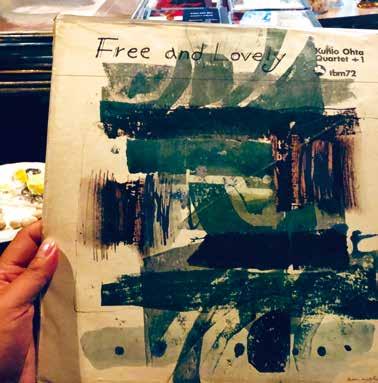


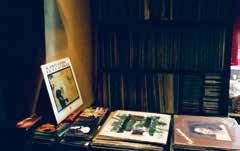
鍾,或是對某個音樂類型如數家珍。這些店通常不大,有些甚至小 得過分,只能在吧台坐上幾個客人。這些地方來的往往是常客,大 家下班了,會過來喝上幾杯,跟老闆打個招呼,再另尋去處。 不過,就算第一次前去也無需擔心。因為地方小,但凡落座, 點上一杯酒後,你跟老闆或是其他客人就更容易寒暄幾句。話題相 投,大家熟絡起來,你能體會到那種陌生人的善意和溫暖。 在北野有一家叫 Jazz&Booze 的爵士酒館就是如此。 那兒不大不小,吧台裡放著幾排酒,對面牆上貼著 Billie Holiday 的海報,邊上散落著幾本爵士樂的書和雜誌,盡頭處唱片 架上放了百來張唱片,看封套的新舊程度,都是久歷了沙場。 你要是第一次前去,會發現店老闆富山公雄先生看起來像個 不太愛說話的人,但他也許已在用另一種語言和你交談。 我記得自己第一次去那的時候,發現他接連放的幾張 唱 片, 都 跟「 春 天」 有 關。 先 是 小 曾 根 真 的《Spring Is Here》, 再 是 Bill Evans 的《You Must Believe In Spring》,而在吧台的盡頭,正好就有一張 Bill Evans 的簽名照。 我跟富山先生的交談,就是從 Bill Evans 開始的。 他告訴我,這張照片是他向自己一個朋友借的,結果 放在這一放就是很多年。照片上的簽名日期是 73 年,但實際 上 Bill Evans 搞混了年份,那是他 75 年的時候簽的名。 富山先生對日本本土的爵士樂很熟悉,尤其是一個叫「三盲 鼠(Three Blind Mice)」的廠牌,他給我聽了不少這個廠牌所 出的唱片,都是他的珍藏。每每介紹起這些唱片,都會說出它們發 行的確切年份。我驚訝於他的記憶力,好奇他怎麼能記得這麼清楚, 但轉念想想,對他這樣的骨灰級樂迷來說,這大概又是個常事。 在跟富山先生的聊天中,我還提起了村上春樹。我告訴他,我 知道村上在神戶上過學,他也是我開始逛爵士酒館的原因之一。 在東京和大阪,我去過好些爵士酒館。東京有家酒館叫 Old Blind Cat,那是村上春樹年輕時經常會去的地方。 富山先生點點頭,轉身找了張名片出來,雙手奉上,告訴我, 其實他這家店也已開了幾十年,差不多十多年前搬來了這個新樓, 在此之前的老店,村上春樹也有光顧。 說起來,他跟村上春樹還是同一個中學的校友呢。 我聽了這話頓感驚訝,Jazz&Booze 只是我隨意走進的一家爵 士酒館,沒想到竟有了這麼一個小小的奇遇。 不過有時候就是這樣。 旅行中的快樂,有時候會出現在你意想不到的地方。











